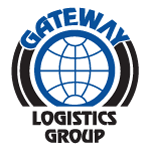Trucking companies have renewed their campaign to harmonize the hodgepodge of regulations for highway transport of oversize and overweight loads that raise costs for project shipments across the 28-nation European Union.
Transporters of outsized cargoes now must obtain permits to cross borders and even to move from region to region within countries. Bureaucracies of conflicting rules and procedures raise costs for shippers and carriers of heavy and oversize shipments such as machinery and construction modules.
The situation has barely improved — and in some cases has worsened — since the 1993 launch of the EU single market, which lifted restrictions on cross-border flows of goods, capital, services, and labor. The single market did not extend to the transport over EU roads of “exceptional” cargoes, which remain stuck in a quagmire of national regulations.
“A plethora of different national rules and regulations makes the industry less safe, less competitive, and puts up the cost for our clients — and ultimately the end users, the general public,” the European Association of Abnormal Road Transport (ESTA) said.
“As far as exceptional transport is concerned, the single market at present is largely a figment of the politicians’ imagination,” said Ton Klijn, ESTA’s secretary and director.
The European Commission, the EU’s executive agency, published its Best Practices Guidelines for Abnormal Transport in 2005. These include SERT, the Special European Registration for Trucks and Trailers, which is aimed at reducing paperwork and bureaucracy that weigh down heavy-lift transport companies.
ESTA has sought to persuade EU member states to work together to create something close to a single market for heavyweight cargoes by adopting the commission’s guidelines.
However, 12 years after SERT was proposed, only the Netherlands has signed on to SERT, although Belgium accepts it for permit applications. Industry officials say EU countries and their regional officials resist simplification of permitting in order to support government jobs and avoid loss of revenue from fees.
“The simple truth is that today, despite the campaigns in the past, the difficulties regarding permit granting in the transport industry remain as entrenched as ever,” said Klijn, who has just stepped down as managing director of Wagenborg Nedlift, the Dutch heavy-lift trucker.
EU regulations on oversize and overweight cargoes vary widely from country to country, creating major problems for transporters and their customers. In Germany, trucks with oversize cargoes can drive only at night. In France, they can drive only during the day. In Spain, permit validity ranges from four weeks to six months, depending on the region. Rules vary from country to country for everything from signage to the pilot vehicles that accompany oversize loads.
Read more here.

